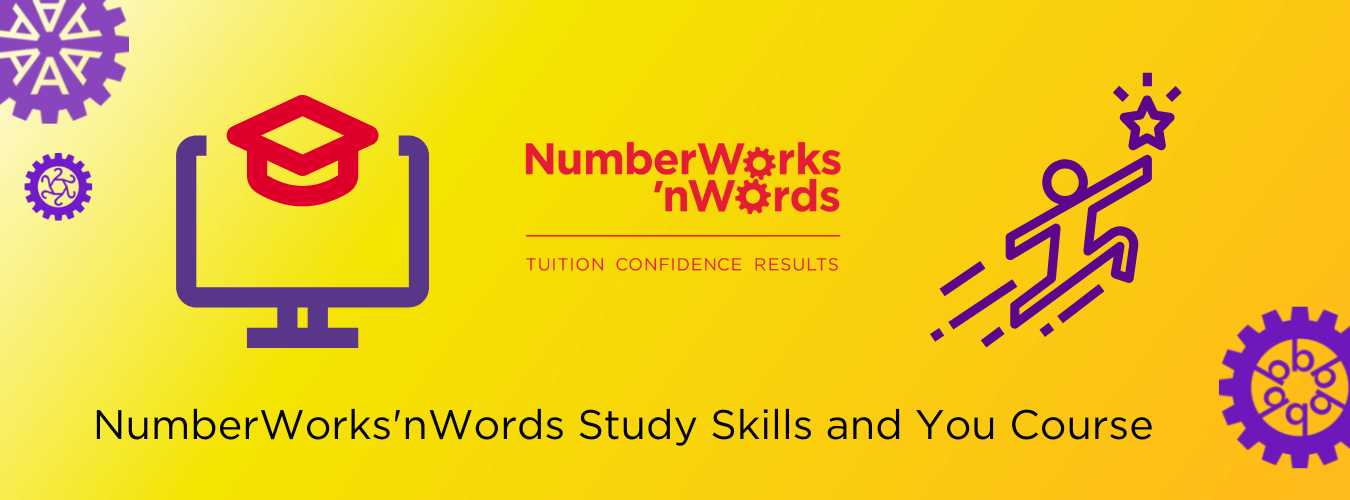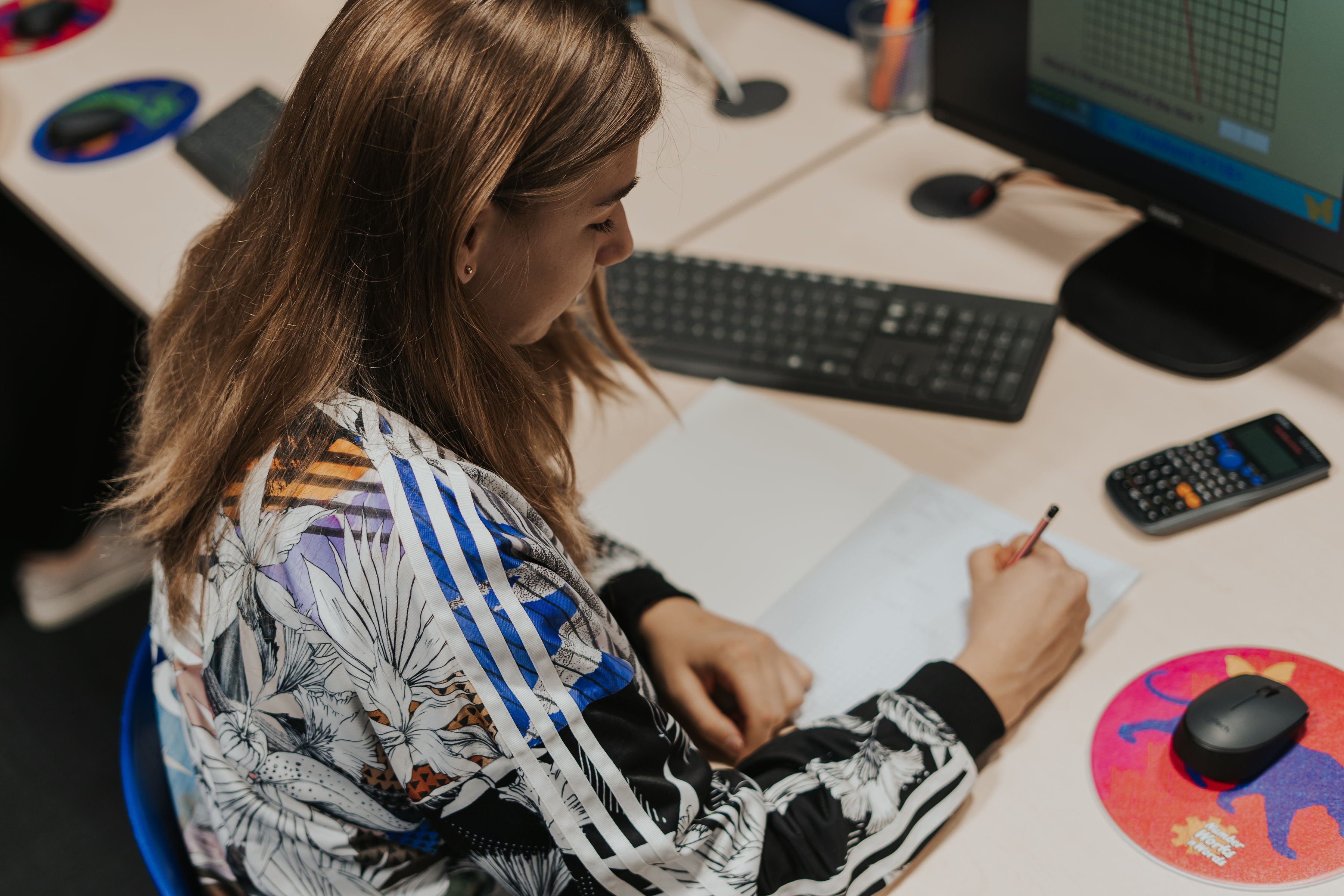Enhance exam preparation with our new Study Skills Course
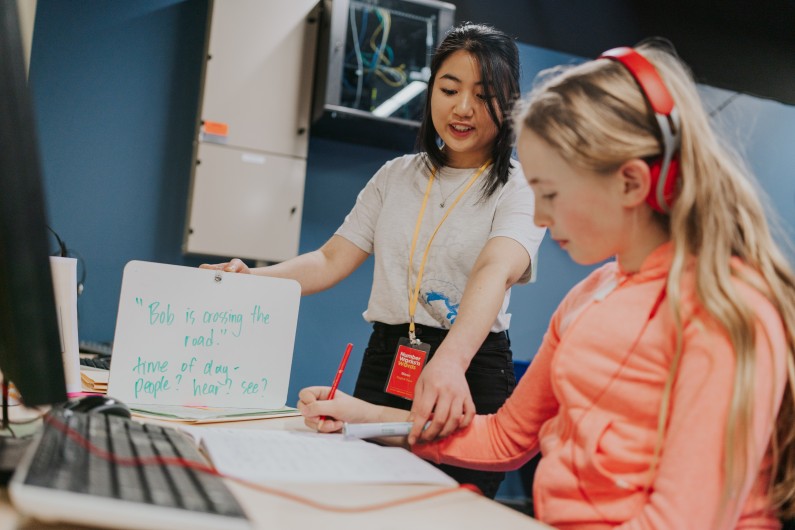
Good study skills are essential to helping your child get ahead academically. Motivation, combined with the skills of goal setting, time management, and effective studying methods, are all essential to developing a great study practice.
A good study routine that incorporates the right skills can increase a student's aptitude and confidence, reduce anxiety and tests and deadlines and also reduces the hours needed to study when an effective study practice has been established.
As academic expectations increase for our students, effective study tactics become more essential to their success. But at school, is your child receiving a good grounding in how to go about setting up a great studying practice?
Often the learning focus of school curriculums is on the content, and not on how to effectively prepare for exams and put in place good studying habits. So how can our young learners develop good study habits?
At NumberWorks'nWords we are aware that parents have long been looking for help for their children to develop great study skills. Which is why our educational experts have developed a new holiday course. Study Skills & You, to help students achieve academic success when preparing for exams.
The course has been formulated using an understanding of psychological and cognitive science, combined with best-practice studying techniques, carefully crafted to get the best possible performance from young learners.
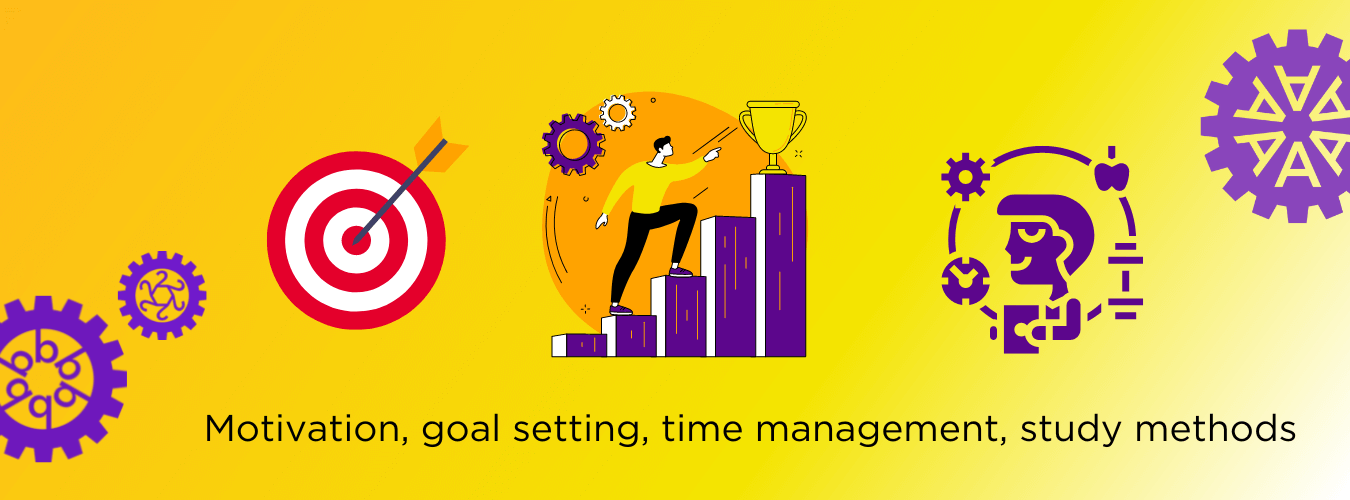
Effective study habits that overcome studying barriers
There are many barriers to studying. To overcome these, it's important to have effective study strategies in place. One of these barriers includes memory loss.
Have you had the experience of coming across an interesting piece of information, and then found that when you attempt to relay it to someone else you can't recall the details? This is something we've all experienced, and can be explained by the 'forgetting curve', a memory model that shows how information is not retained unless we take action to keep it there.
The steepest drop in memory happens quickly after learning. This means that your child may put effort into studying, and find a week later when they revisit the material, that they haven't retained the knowledge. This can be very disheartening, and lead to your child thinking that they aren't smart enough, which is not the case!
Being aware of the phenomenon means that your child can put in place studying methods that ensure they follow up quickly on the effort put in the previous day, in order to solidify the progress they have made.
Another barrier to studying is that it can feel like a lot of hard work! To mitigate this there are many study tips students can use to make the experience feel more rewarding, such as creating the right study environment, minimising distractions, sticking to a routine, taking regular breaks to increase concentration and building in incentives to their study practice.
For more information on how breaks can help improve your child’s study routine, see our blog on the benefits of taking breaks for learning and focus.
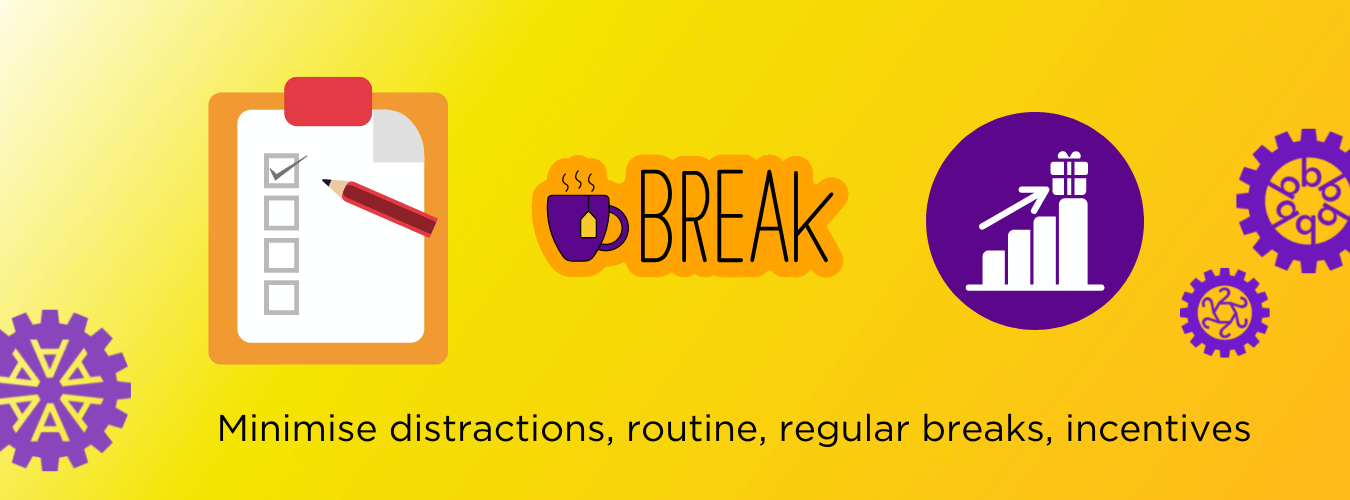
How to motivate children to study
In today's fast-paced world, staying engaged at school can be a challenge. Often it's all about finding the proper motivation. We all have different reasons for doing what we do every day. So why is it that on some days, it can feel harder for students to study for a test or do school homework?
This is an important question to consider, as when it comes to academic success, the amount of effort you put in determines the end result.
During the development of the Study Skills & You course, Dr. Ralph Wesseling, the Director and Development Manager of NumberWorks'nWords, collaborated with external educational experts and utilised his knowledge in education and cognitive psychology. According to Dr. Ralph Wesseling, our motivation is often the driving force behind our actions.
"Understanding what motivates you and the different types of motivation can help students to keep themselves motivated and achieve their goals.
"There are two types of motivation, intrinsic and extrinsic. Intrinsic motivation drives a person to perform an activity because it is enjoyable and personally rewarding; a person is motivated by the fun or the challenge, and not by an outside outcome, pressure or reward. Extrinsic motivation is when you do an activity to get a specific outcome or avoid a negative consequence.
"Both intrinsic and extrinsic motivation are important drivers for productivity and academic success. Our course helps students, understand this, as well as gain knowledge about factors that can increase these kinds of motivation," says Dr. Wesseling.
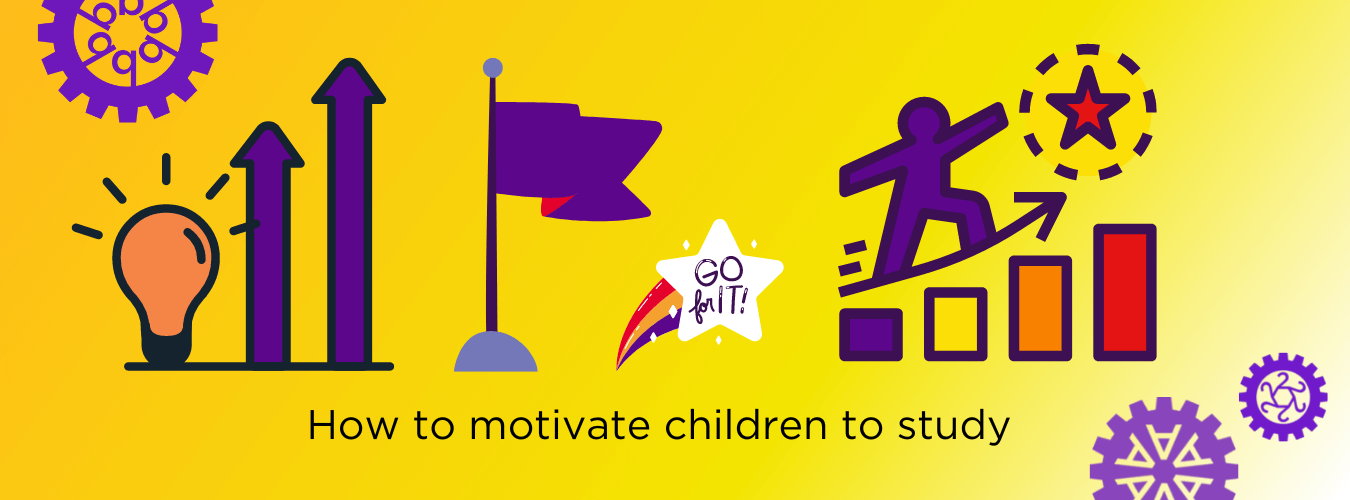
A studying method that works
It is essential for students to find an effective study method that works for them. Many students will be wondering if they are doing it the right way. Are things such as highlighting, rereading and summarising good uses of their time? In actual fact, many of these things are a waste of a student's time.
Best practice research, according to cognitive science, has established 6 different studying strategies that are proven to be the more effective. Two of the most effective are the Spaced Practice and the Retrieval Practice.
The Spaced Practice method shows that five hours of intensive study (or 'cramming) is not as effective as those same five hours spaced out over the course of two weeks. Students applying a Spaced Practice, will learn more and get better results in the same amount of time. They will also be less stressed and have to spend less time studying in the future.
A Retrieval Practice will provide a major boost to a student's learning. It involves practising retrieving everything in your head you already know about a topic. The student puts away all their course material and books, and writes down or sketches out everything they know right now. This technique reinforces what has already been learnt, and makes it easier to retrieve it later on. It also will help improve a student’s recall abilities, which will assist them greatly when taking exams.
In Study Skills & You, our students will be introduced to six essential study strategies, including the Spaced and Retrieval study practices, which they can put into practice in order to effectively study and prepare for exams.
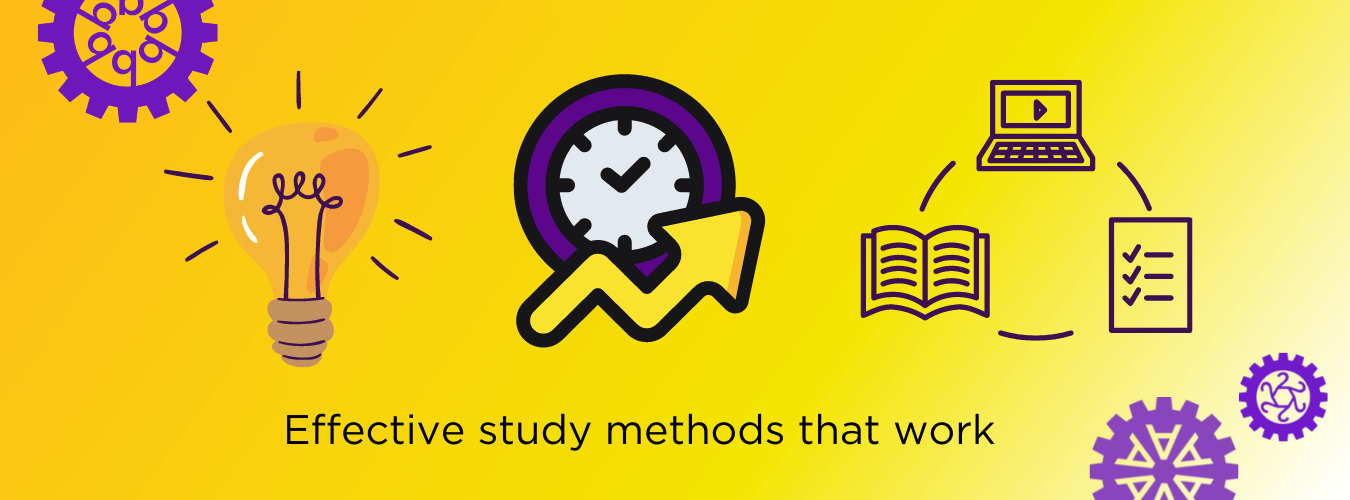
The importance of time management
It’s easy to feel overwhelmed and stressed when you have a lot to achieve. When students don’t have a good strategy for managing their time, even starting to study can feel like it’s too much. As well as setting goals to get them on the path to success, effective time management is a critical study skill for students to have.
A good time management strategy will reduce stress and increase productivity at the same time! In our Study Skills & You course, students learn how to manage their time, by reflecting on their everyday commitments and responsibilities and evaluating the time they have and the amount of time they will need to achieve their goals.
We also teach them tools to prioritise tasks by urgency and importance, and how to minimise distractions, in order to use their time effectively and achieve academic success.
The end result is a study timetable they design for themselves to be effective for their learning, which takes into account factors such as breaks, rewards, and an understanding of when and where they study best.
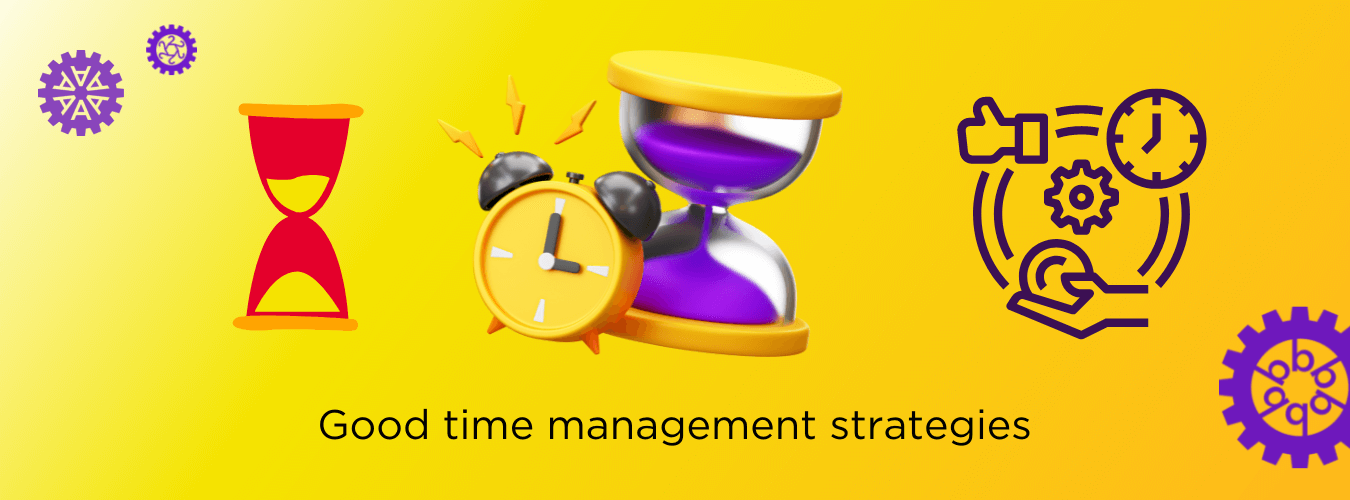
Setting goals for success
Without knowing what you want to achieve, it’s impossible to get there! In the same way, you need a map to get to your destination, students need to set their own roadmap to success.
Making goals is something we all do through life, whether it be wanting to go on a holiday, becoming successful at an occupation you dream of, or making a certain amount of money in a certain time. We can’t just hope that we will achieve these goals - we need to plan and break down goals into steps to make sure that we are on the right track.
Knowing the ‘big picture’, in terms of what you want to ultimately achieve is very important for motivation. In our Study Skills & You course our students will reflect on their values and goals and develop a personal mission statement to help guide them in their studying aspirations. A personal mission statement reflects a person’s values and can guide their life decisions, saving time and energy for what matters most.
When you’re focusing on the big picture, you also need to know what steps are that you need to take to get there. Our students will write a personal roadmap that will help them to achieve their aspirations! This will involve setting goals to put in place their study routine, including setting up the right environment, time management practices and study strategies.
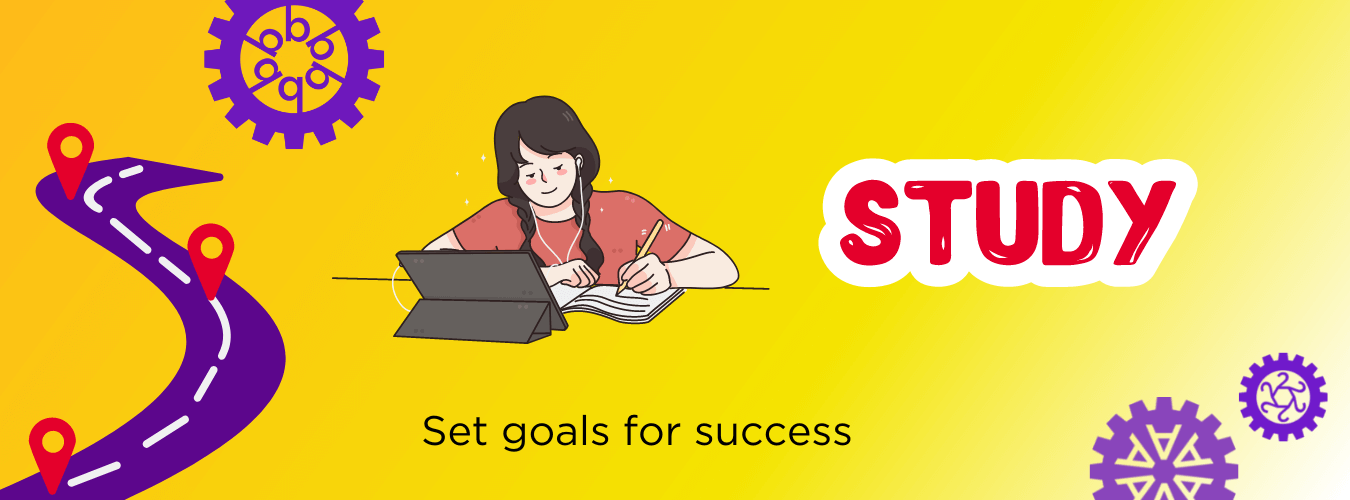
Help your child reach their full potential by acquiring a great study skill practice
Give your child the skills and confidence to prepare for exams with our Study Skills & You course. They will gain the motivation to get ahead, combined with a toolkit that includes goal setting and time management skills, and studying methods that work.
Our Study Skills & You holiday course is delivered in three 90-minute modules over three days by participating NumberWorks’nWords centres. Locate a centre near you to find information about availability in your area.
